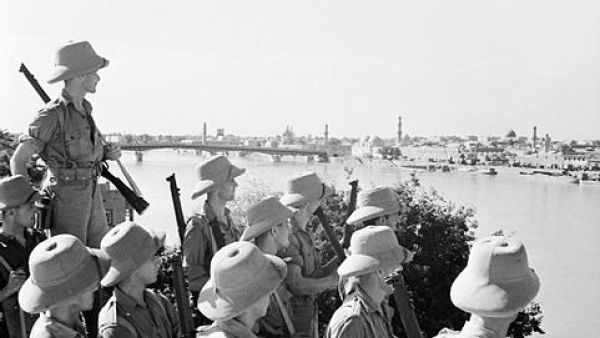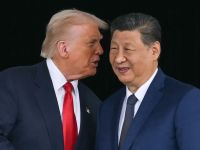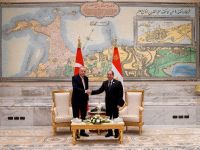- Iraq entered the League of Nations in 1932 as an independent nation
- But it was not until 1958 that power truly shifted to Iraqi hands
- British colonialism left behind a legacy of minority rule that had disastrous consequences under Saddam Hussein and after his overthrow
- Iraqi Kurds first had their ambitions to independence crushed under the British mandate
It was on this day in 1932 that Iraq officially became an independent country.
In 1920, 12 years earlier, Britain had committed at the League of Nations to creating a viable state from the former Ottoman provinces of Baghdad, Basra and Mosul.
Instead, the nation it left behind was little more than a “quasi-state”, according to historian Toby Dodge.
Exactly 85 years on, the legacy of self-serving British colonialism in Iraq continues to be felt.
Iraq was then, as it is now, divided into Arabs and Kurds, Sunnis and Shias, Muslims and non-Muslims.
Ignoring these subtleties, in 1921 Britain brought in the non-Iraqi King Faisal to rule, after having repressed a revolt against the British occupation only a year before.
The King was, Dodge writes, the pinnacle of “a small and largely unrepresentative Sunni Arab governing elite”.
It was this elite which would inherit “a badly built and unstable state” after Britain hurredly rid itself in 1932 of a colonial project in Iraq that was no longer in their interests.
According to Dodge, the failure of Britain to adequately fulfil its League of Nations mandate “created the basis to the political instability and violence that has come to dominate Iraq.”
It had been hoped that Faisal’s foreignness might weaken his rule, ensuring his dependence on Britain.
The inevitable consequence was that for at least 16 years following the official end of mandate British mandate, Iraq continued to heavily rely militarily on its former colonial ruler.
This is true to the extent that 1932 is not in fact marked in Iraq as the end of colonialism. Rather, it is 1958, the year the royal family was overthrown in a bloody military coup, that is celebrated as the emergence of an independent republic.
- After Years of Sectarian Conflict, Many Iraqis Welcome Sadr's Gulf 'Rapprochement'
- Sectarianism After ISIS: Fears as Shia Militias Take Part in Tal Afar Offensive
Taking the precedent of British rule, Iraq continued to be ruled by leaders drawn from its Sunni minority until after the 2003 war.
It was in this context that Saddam Hussein came to power in in 1979, the beginning of a dictatorship that would brutally repress Iraq's Shia, among others.
This history gave rise, following Saddam’s overthrow, to the emergence of brutal sectarian conflict, that continues to rumble on today.
The backlash to the century of minority rule, begun by the British, continues today as Sunni Iraqis complain of their marginalization from political control. At the same time, rights groups accuse government forces and the Hashd al-Shaabi group of militias of serious abuses against the Sunni-majority population of Mosul during the fight against Daesh.
Another of the major effects of European colonialism on Iraq can be seen in last week’s independence referendum in Iraqi Kurdistan.
Despite Kurdish ambitions even back in 1920 for their own state, and their objections to being governed from Baghdad, it was central rule that was imposed by Britain.
Allowing Iraq’s Kurds - along with their counterparts in Turkey and Iran - to form a state was considered unthinkable by the British occupiers, who saw it as a possible menace to Iraq.
It was a deeply discontent Kurdish population that Britain left Iraq with in 1932.
Almost a century on, Baghdad continues to control - albeit with provisions for Kurdish autonomy - Iraqi Kurdistan. Only a few days ago, Iraq forced the suspension of international flights from the region’s airports and seized the oil fields in Kirkuk.
Meanwhile, Iraqi Kurds continue to pine for their own nation.
Britain may have handed power over power in Iraq. But, in 2017, can it truly be said that colonialism has ended?
Fourteen years after the U.S.-led invasion of Iraq, its military presence continues.
In events that were reminiscent of Britain's mandate nearly a century earlier, the U.S. (and its allies) took control in 2003 only to realize that ensuring a successful, secure state in Iraq was much more difficult that expected. Like Britain before them, they largely withdrew, leaving a nation that remained militarily dependent on outside assistance.
Most recently, hundreds of civilians in Mosul were killed by US-led airstrikes as part of the fight against ISIS.
And meanwhile, Iranian influence on Iraq's powerful Shia militias continues to grow.
A full 85 years on from "independence", the question remains: when will Iraq be free of outside interference?







